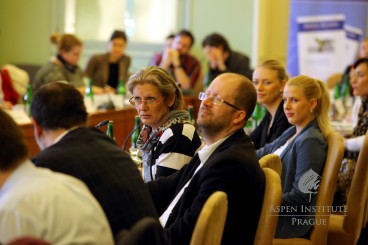Policy meeting in Prague
Context
The policy meeting is part of the Creating Digital Agenda for Visegrad project by the Aspen Institute Prague and Central European Policy Institute, and supported by the International Visegrad Fund. Within the project, two meetings have already been organized with policy-makers in Slovakia and Hungary. The project will be concluded with a policy paper evaluating policy approach to digital agenda and recommending a set of priorities for the Visegrad group. The paper will be presented during the GLOBSEC Conference in Bratislava in 2015.
Objective
Following the V4 contribution on Digital Single Market Digital Single Market as an Opportunity for Entrepreneurs and Consumers or the recent joint statement by the State Secretaries of V4 on the fragmentation of digital market, published in EUobserver, the Visegrad Group shall now choose several key priorities for the next few years. The meeting will be the opportunity to discuss what those pivotal steps could be and how to pursue them.
Speakers
- Peter Javorčik, State Secretary, Ministry of Foreign and European Affairs, Slovak Republic
- Tomáš Prouza, State Secretary for European Affairs, Office of the Government, Czech Republic
Topics
Key Priorities of the Visegrad Group in Digital Agenda
- Digital agenda during the Slovak Presidency of the Visegrad Group
- Visegrad Group priorities in regard to Digital Single Market
- Czech priorities in digital agenda during its Presidency of the Visegrad Group
- What are the critical tasks in digital agenda that Visegrad Group countries can work on as a group?
The event is invitation-only and will be conducted under the Chatham House rule.

